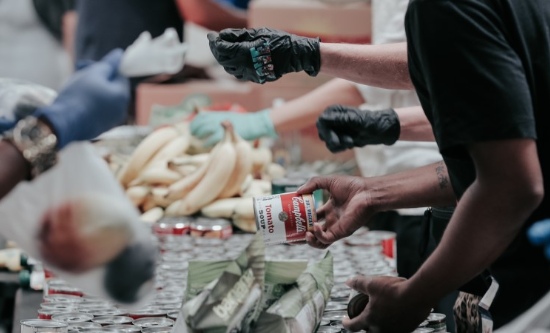
Whilst the British government continues its crusade against ‘illegal immigration’ with a raft of increasingly repressive, racist measures, the reality for those who fall within the existing legal frameworks continues to be one of intense hostility. A recent report by the University of Hertfordshire and Food Foundation titled ‘Immigration Policy and Food Insecurity in the UK’ lays bare the precarious situation of migrants and asylum seekers facing disproportionate levels of food poverty. Just as during the pandemic, it is black and Asian migrants who are facing the most severe effects of the ‘cost of living crisis’.
The report is a culmination of interviews with people whose immigration status grants them No Recourse to Public Funds (NRPF). This includes asylum seekers awaiting a verdict on leave to remain, as well as foreign workers on temporary visas. The funds they are prevented from receiving include Universal Credit, Carer’s Allowance, Child Tax Credit and Personal Independence Payment, homelessness assistance and local authority allocation of social housing. 1.4 million people in Britain are faced with this designation, including 175,000 children. With soaring food prices, those denied basic state welfare by NRPF are ‘not only struggling to access healthy food, but they were also unable to access a sufficient amount of any food’.
The pandemic severely worsened the situation of NRPF designees, and by mid-2020 they represented 11% of foodbank users despite representing just 2% of the population of Britain and the north of Ireland. The report confirms that this process is only accelerating, with virtually all participants reporting having to regularly use foodbanks. An asylum seeker in temporary accommodation receives £45 per week, from which they must purchase all of their weekly food, as well as other expenses such as transport and clothes. Though year-on-year food inflation is at 16.4% as of November 2022, the allowance was only increased by 10% in December 2022 after the High Court ruled the previous £40.85 rate to be unlawful.
This is still inadequate and leaves no room for other essentials: one asylum seeker reported being unable to afford a winter coat or winter boots for her children. Left at the mercy of private accommodation providers such as Serco and Mears Group, many are not provided with sufficient cooking equipment and the meagre weekly allowance leaves them unable to purchase any. Asylum seekers are forbidden to work; foodbanks represent the last line of defence from hunger and starvation.
Far from being a ‘broken asylum system’, this is the system working exactly as intended, to leave asylum seekers in a state of constant precarity, squalor, and food poverty for years as their claims are processed.
The net result of all these mechanisms: a hyper-exploited stratum of black and Asian migrant workers and destitute asylum seekers who continue to bare the brunt of any economic crisis facing British capitalism. The true extent of food poverty among migrant workers and asylum seekers is difficult to gauge; the government doesn’t bother to publish any figures of its own. Instead, they remain content that the immigration system is working on behalf of British capitalism; hunger, poverty, precarity and destitution being necessary outcomes of this.
George O’Connell




